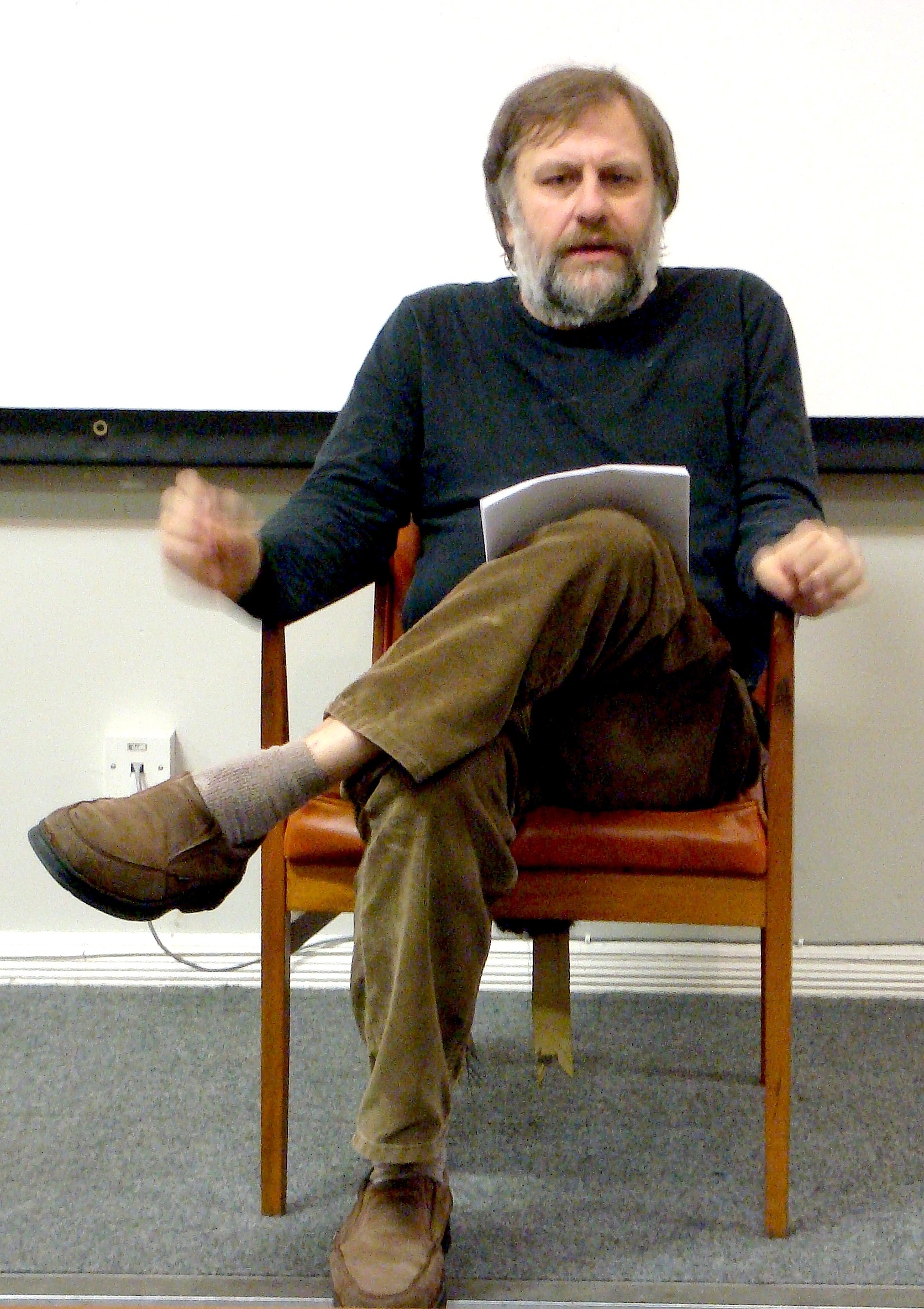
Saturday, November 19, 2011
Preeminent Philosopher Slavoj Žižek speaks @ #Occupy Wall Street

Friday, March 19, 2010
Role of State
JR: "Public infrastructure, protection of the state’s borders, maintenance of commerce"
Each of these benefits individuals, at least in theory. That the state does not provide services for individuals as well as protect the rights of individuals is going to be tough to argue.
JR: "If you require the state to improve the conditions of the individual then this is done at the expense of others. So by its very essence you are taking from one, to provide for another."
This is not only a principle of economics, but of nature.
Every time we eat something, we are taking energy from one to provide for our self. All living organisms are taking from someone or something else to provide for themselves or, “By [their] very essence… taking from one, to provide for another."
It could be argued eating is not immoral because the sources we draw from for food aren't persons and it would be immoral only to take from rational beings. But it seems like the Mesoamerican and Native American cultures did appreciate this and find ways to reconcile selfishly taking from nature to support their own existence. But, even if it’s the case that moral status applies only to rational beings, any acts of usury, profit seeking, and alas, the principles of capitalism itself would be inherently immoral. Maybe they are. But, I would argue that taking from one to provide for another isn't inherently immoral because it’s a necessary and integral aspect of nature, and it is especially not immoral in cases where one has a surplus while the other has a scarcity. That might not be applicable in all situations, but generally, I believe rule to be morally superior to one that allows for coercive competition and a common disregard for others in disadvantaged positions.
I appreciate what Valadez says in his Pre-Columbian Philosophical Perspectives about the Western ideas of the right private property in contrast with Pre-Columbian values: “…Western culture has elevated the individual's right to own private property into a fundamental human right. We see this ‘right’ as so basic we consider it more important than the right of an individual to have enough to eat or have adequate shelter” (p108).
JR: "Ensuring an individual the freedom to improve their situation, is different that a responsibility to improve those conditions."
Agreed. But, I don't see any moral problem with the state, or organizations, or people supporting individuals in their ability to self-actualize.
"Take for example affirmative action. There is a difference in a state saying that all classes of people have a right to jobs that they qualify for that job, and a state that reserves or requires certain numbers of a class to participate in a profession. A state that is actively engaged in such a practice is limiting the freedoms of some and giving preferential treatment to others."
Agreed, but these states are doing so in response to centuries of prejudice and the limitation of the freedoms of these same people to which they are giving preferential treatment—demographics of people who, for the most part, have historically been denied those opportunities and privileges. It ensures what a negative (freedom-from) approach would not necessarily ensure.
Maximizing a person's freedom might mean reducing another’s if the two interfere, just like increasing one person's wealth--wealth requiring a source--may be a product of reducing another's.
Egalitarian initiatives are basically attempts to equalize freedom, which in some cases requires limiting individuals and organizations in their ability to limit the freedoms of other individuals. Even stating it this way could be considered simply a protection of negative liberty, and not really directly "improving conditions for individuals." Some egalitarian initiatives might also attempt to encourage or support individuals in achieving certain goals, like Affirmative Action, and could be considered initiatives that support positive liberty—where the state is actually providing an opportunity rather than protecting it.
